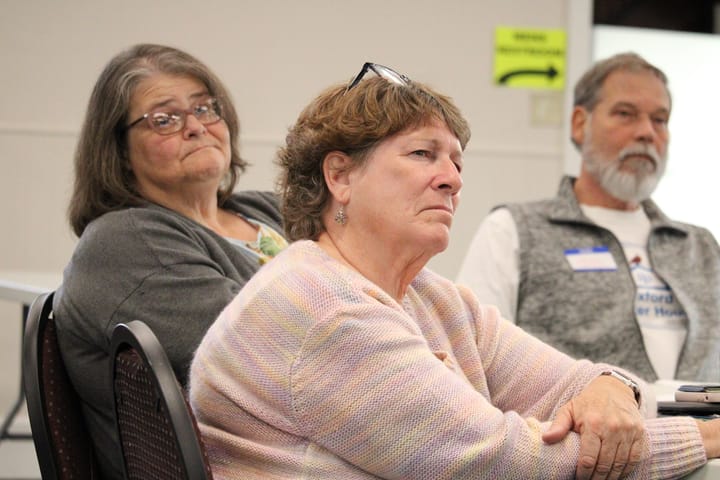New TOPSS initiative gets neighborhoods involved in stocking food pantry
A new initiative at TOPSS is encouraging "neighborhood food champions" to collect needed food and supplies for the organization's food pantry through localized drives.
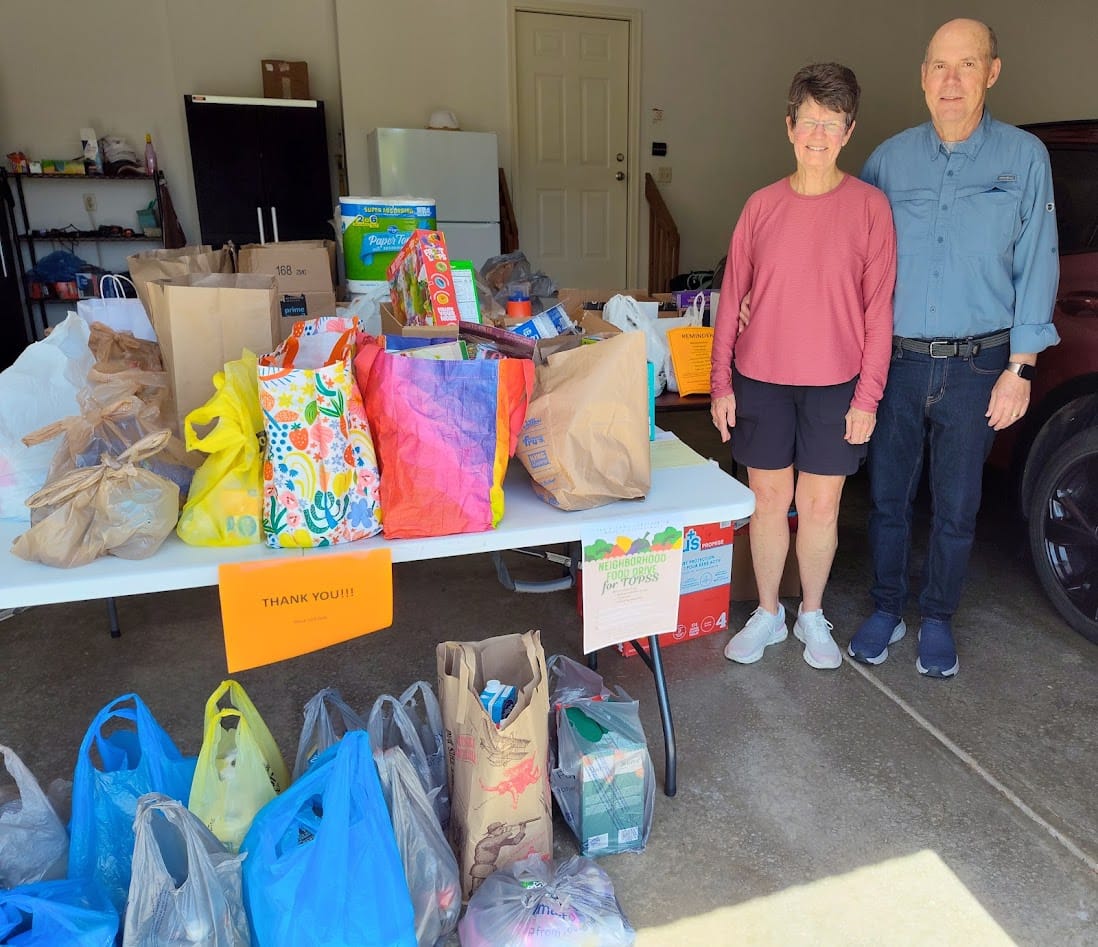
When Frances Yates retired in January, she knew she wanted to spend more time volunteering. That desire, coupled with experience helping those facing food insecurity in another community, led her to Talawanda-Oxford Pantry and Social Services (TOPSS), where she’s now spearheading a new program to coordinate neighborhood food drives.
TOPSS operates a food pantry which serves low-income residents throughout the Talawanda School District. Keeping shelves stocked can be a challenge, especially with the organization providing food to nearly 3500 people last year alone. The neighborhood food champions initiative is helping to meet the pantry’s needs.
Yates came to TOPSS Executive Director Sherry Martin with the idea of coordinating mini food drives by neighborhood, and the food champion initiative developed from there. People can become food champions by devoting three to four hours of their time to coordinating a local food drive on their street or in their neighborhood.
The program started in April and already resulted in six neighborhood food drives, Yates said. Eight more are already planned for this summer, with another eight volunteers interested in coordinating their own.
“It’s great because one person is doing it, and then they recruit another person, and we've done outreach with local organizations and get referrals … and it’s just snowballed,” Yates said. “I think the momentum will continue as we get more neighborhoods.”
The neighborhood efforts are flexible and easy to coordinate, Yates said. Some food champions have asked neighbors to drop donations off at their own homes, and others have picked up food from front porches at a specific time. The biggest responsibility for volunteers is to communicate with their neighbors to make sure they know when the collection is happening.
For Martin, the extra help is coming at a critical time. TOPSS relies on Shared Harvest Foodbank for much of its food, but federal funding and program cuts have made the food supply less reliable in recent months. Demand at the food pantry also increases in the summer when school lets out, just as TOPSS loses a core base of volunteers when Miami University students head home at the end of the spring semester each year.
“The timing is perfect with the neighborhood champions, because the students will be leaving, and they do a lot of food drives for us during the school year,” Martin said.
According to reporting by Reuters, government spending cuts under the Trump administration have impacted multiple programs in the U.S. Department of Agriculture which helped food banks get food from local farms. Martin said she expects supply issues to get worse before they get better, and Shared Harvest has told its partner pantries that it’s working on diversifying its sources to be less dependent on government assistance.
“It’s kind of discouraging when I see the order from them every month,” Martin said. “They’ve left everything on that they would have had and marked out what’s gone because of whatever changes so that we can see the difference. That’s frustrating.”

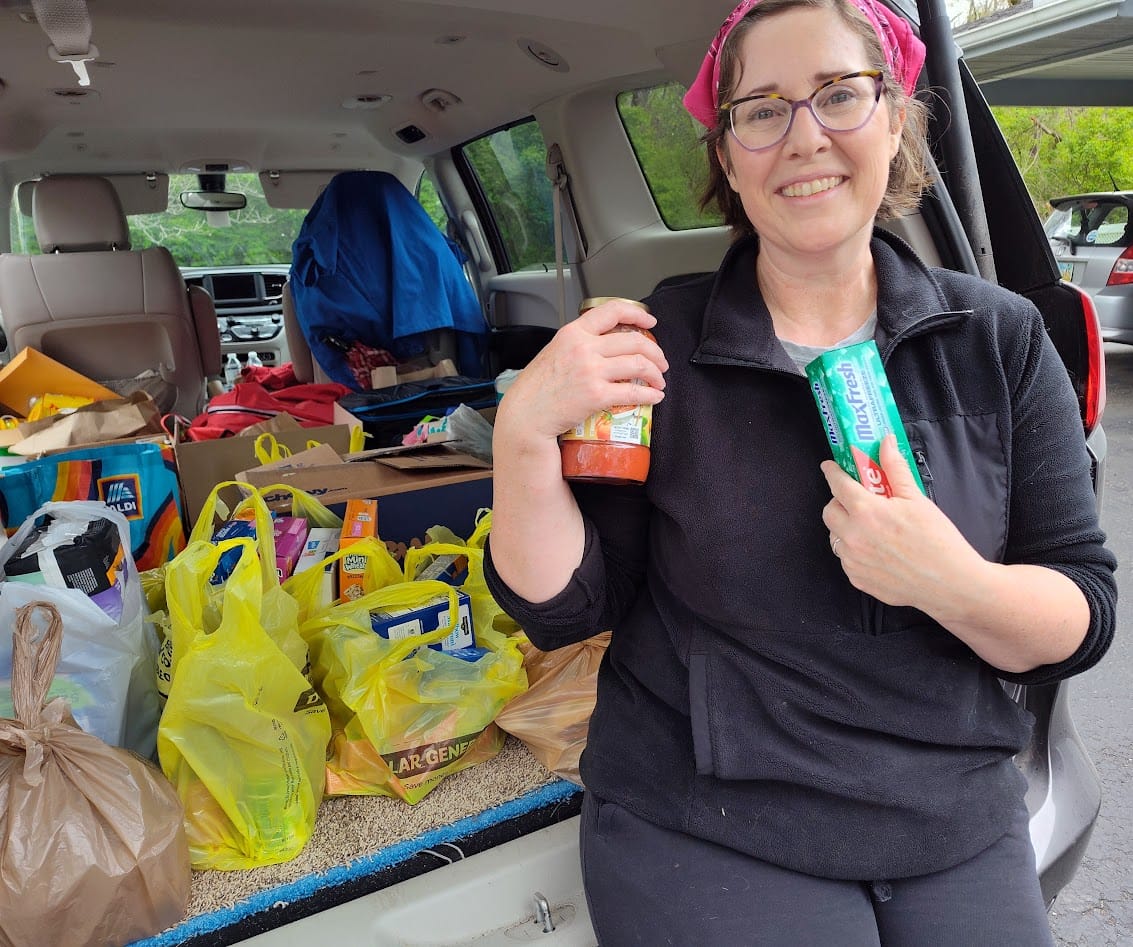
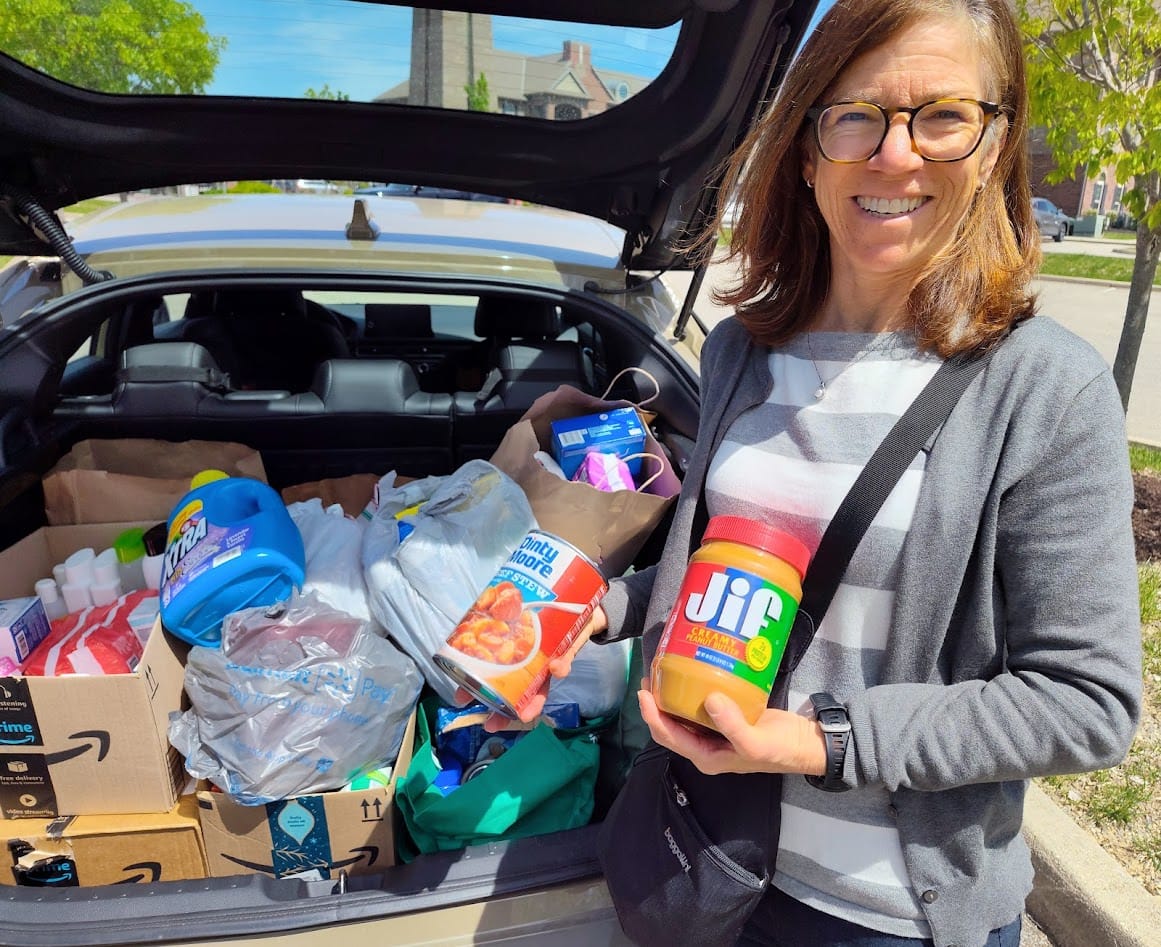
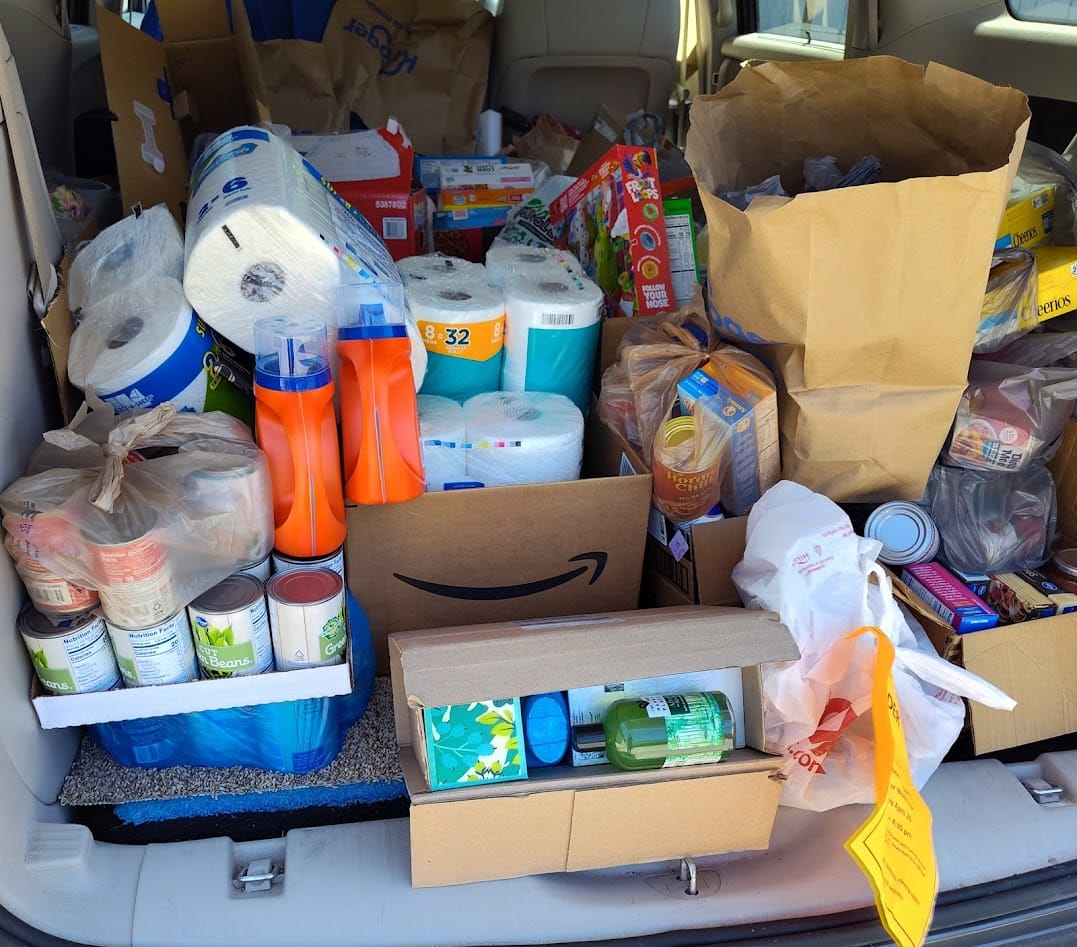
TOPSS Executive Director Sherry Martin says the neighborhood support for the food pantry is coming at a critical time as Miami University students, a core group of volunteers, are set to leave campus for the summer soon. The six food champions in April included Jackie Berberich (top right) and Rebecca Smith (bottom left). Photos provided by Frances Yates
While TOPSS accepts a wide variety of donations, including through the neighborhood food champions initiative, Martin said they’re especially focused on staple items that Shared Harvest is struggling to provide. Right now, that means pasta especially, as well as rice, which Martin said TOPSS won’t receive from Shared Harvest for two weeks.
Meeting the food needs of low-income families is the main push for the neighborhood food drives, but to Yates, the volunteers have benefited, too.
“It brings people together for a common purpose,” Yates said. “That might sound cliche, but they seem to enjoy doing it, and the outcome is so positive.”
Volunteers interested in becoming neighborhood food champions can fill out this Google Form for more information.


